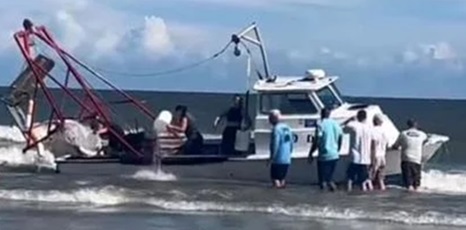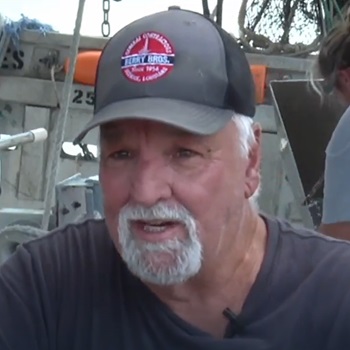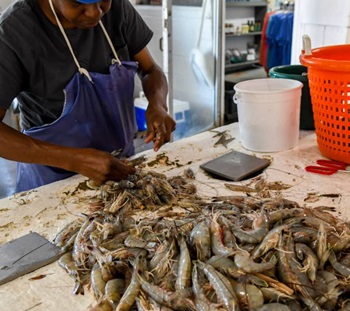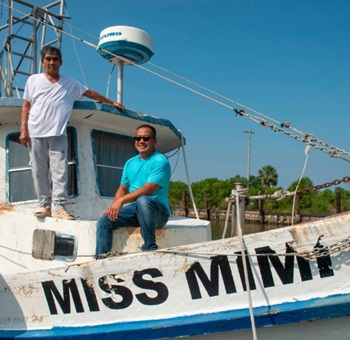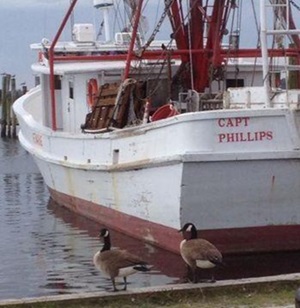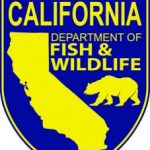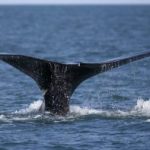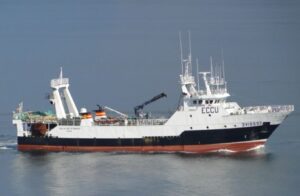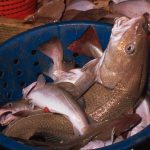Tag Archives: shrimping industry
Lawmakers demand review of U.S. Government Accountability Office’s oversight of shrimp imports
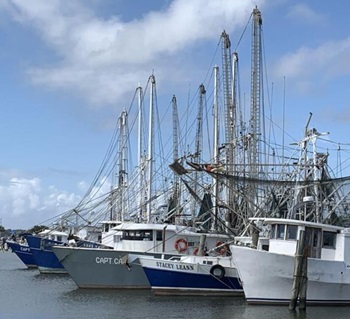 House Committee on Oversight and Accountability Chairman James Comer, R-Ky., U.S. Rep. Clay Higgins, R-La., and U.S. Rep. Troy Nehls, R-Texas, are calling on the U.S. Government Accountability Office to scrutinize whether the U.S. Treasury Department is fulfilling its legal obligation to protect American industries, including the shrimping sector, from international competition. The representatives voiced concerns in a letter sent to the GAO, suggesting that the Treasury may be neglecting statutory requirements that compel the department to oppose foreign economic assistance projects that could harm U.S. industries. more, >>CLICK TO READ<< 08:17
House Committee on Oversight and Accountability Chairman James Comer, R-Ky., U.S. Rep. Clay Higgins, R-La., and U.S. Rep. Troy Nehls, R-Texas, are calling on the U.S. Government Accountability Office to scrutinize whether the U.S. Treasury Department is fulfilling its legal obligation to protect American industries, including the shrimping sector, from international competition. The representatives voiced concerns in a letter sent to the GAO, suggesting that the Treasury may be neglecting statutory requirements that compel the department to oppose foreign economic assistance projects that could harm U.S. industries. more, >>CLICK TO READ<< 08:17
Photos: Louisiana Shrimp Fest/ Shrimp Aid brings attention to the struggling local shrimp industry
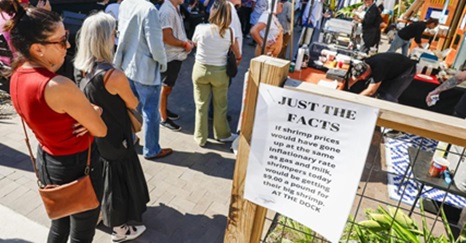 The Louisiana Shrimp Fest/ Shrimp Aid was held at the Broadside in New Orleans on Sunday. Local chefs and coastal organizations put on the new festival to bring attention to the struggling local shrimp industry and the people effected. Dishes with local caught shrimp were served by a variety vendors as musician performed on the stage. Panel discussions with shrimpers and people involved in the industry stressed the need for consumers to ask where their shrimp comes from and to demand locally caught shrimp. Photos, more, >>CLICK TO READ<<08:39
The Louisiana Shrimp Fest/ Shrimp Aid was held at the Broadside in New Orleans on Sunday. Local chefs and coastal organizations put on the new festival to bring attention to the struggling local shrimp industry and the people effected. Dishes with local caught shrimp were served by a variety vendors as musician performed on the stage. Panel discussions with shrimpers and people involved in the industry stressed the need for consumers to ask where their shrimp comes from and to demand locally caught shrimp. Photos, more, >>CLICK TO READ<<08:39
“We’re not getting the full value out of it”: The future of local seafood in Louisiana
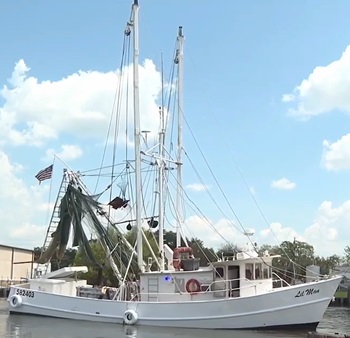 “Industries change over time, like anywhere you are, and so we’re just adapting to the new realities of the seafood supply chain.” LSU’s Seafood Processing Demonstration Lab is a hub for research and innovation. “Our main focus is in underutilized species and byproduct recovery,” said. As the only facility of its kind in-state, this Louisiana Sea Grant-sponsored program works with local processors, restaurateurs, and fishermen, to build local connections. “Louisiana is the #2 seafood state in the nation,” said co-director Thomas Hymel, “but a lot of our product is uh–we’re not getting the full value out of it.” Video, more, >>CLICK TO READ<< 10:10
“Industries change over time, like anywhere you are, and so we’re just adapting to the new realities of the seafood supply chain.” LSU’s Seafood Processing Demonstration Lab is a hub for research and innovation. “Our main focus is in underutilized species and byproduct recovery,” said. As the only facility of its kind in-state, this Louisiana Sea Grant-sponsored program works with local processors, restaurateurs, and fishermen, to build local connections. “Louisiana is the #2 seafood state in the nation,” said co-director Thomas Hymel, “but a lot of our product is uh–we’re not getting the full value out of it.” Video, more, >>CLICK TO READ<< 10:10
Alabama politician advocates for imported seafood inspection bill
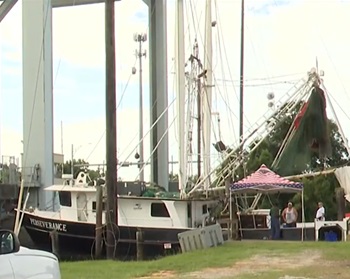 Representative Chip Brown of Alabama House District 105 is set to introduce House Bill One during next year’s legislative session. This bill aims to impose a $200 fee on seafood dealers caught selling imported seafood. The money will fund inspections by the Alabama Department of Public Health. “I think that’s a good thing,” said Tammy Hall, co-owner of Sea Harvest Fresh Shrimp Boat and Bridgeside Seafood Market in Bayou La Batre. “I think the fine should be more than $200, myself.” “It keeps our shrimp prices low,” said Hall. “People can buy an imported shrimp say like jumbo jumbo shrimp for $1.50 a pound .. we can’t afford to sell it for $1.50 a pound with the rising prices of fuel and ice.”To adjust, Hall and her family decided to sell directly to the public. Video, more, >>CLICK TO READ<< 16:07
Representative Chip Brown of Alabama House District 105 is set to introduce House Bill One during next year’s legislative session. This bill aims to impose a $200 fee on seafood dealers caught selling imported seafood. The money will fund inspections by the Alabama Department of Public Health. “I think that’s a good thing,” said Tammy Hall, co-owner of Sea Harvest Fresh Shrimp Boat and Bridgeside Seafood Market in Bayou La Batre. “I think the fine should be more than $200, myself.” “It keeps our shrimp prices low,” said Hall. “People can buy an imported shrimp say like jumbo jumbo shrimp for $1.50 a pound .. we can’t afford to sell it for $1.50 a pound with the rising prices of fuel and ice.”To adjust, Hall and her family decided to sell directly to the public. Video, more, >>CLICK TO READ<< 16:07
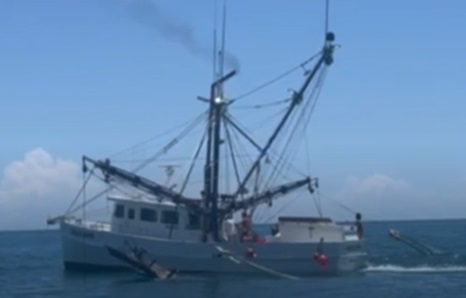
North Carolina: Debates over ending inshore trawling to protect marine life
For commercial fishermen like Thomas Smith, who works in the Pamlico Sound, shrimp trawling is essential for their livelihood. “Most of our income comes between July and November while working on inshore waters,” says Smith. He said that keeping shrimp trawling operations only in the ocean would only be viable for about two months each year, potentially devastating his business. “It would put me out of business,” he adds. Tim Gestwicki, CEO of the NCWF, supports ocean shrimp trawling but insists that inshore trawling must be stopped to protect juvenile fish species, such as the Southern flounder. “It’s time for us to catch up with the times and quit squandering our resources unnecessarily,” said Gestwicki. Video, more, >>CLICK TO READ<< 09:37
$3 million Shem Creek dock renovations aim to boost shrimping, fishing fleet
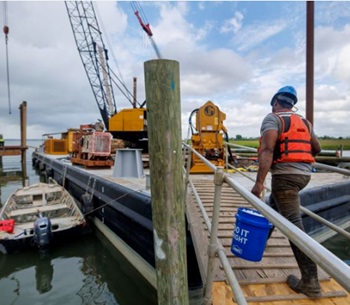 In a show of support for the longstanding shrimping industry, the Shem Creek docks are undergoing major renovations. The $3 million repair and rebuild of the dock, pier and processing building on Haddrell Street began June 11. Construction for the project was awarded to Cape Romain Contractors in April. Crews will remove and rebuild the existing boardwalk and pier to create a wider walking clearance for shrimpers and improve accessibility for workers and visitors. The shrimp docks are not the same as the boardwalk at Shem Creek Park and are tucked away from the restaurants and nightlife that surround the creek. Crews will also repair the shrimp processing section of the building where Tarvin Seafood operates. The back portion of the building has been condemned for years and is unsafe, said Cindy Tarvin, owner of the family-operated business. Photos, more, >>CLICK TO READ<< 09:13
In a show of support for the longstanding shrimping industry, the Shem Creek docks are undergoing major renovations. The $3 million repair and rebuild of the dock, pier and processing building on Haddrell Street began June 11. Construction for the project was awarded to Cape Romain Contractors in April. Crews will remove and rebuild the existing boardwalk and pier to create a wider walking clearance for shrimpers and improve accessibility for workers and visitors. The shrimp docks are not the same as the boardwalk at Shem Creek Park and are tucked away from the restaurants and nightlife that surround the creek. Crews will also repair the shrimp processing section of the building where Tarvin Seafood operates. The back portion of the building has been condemned for years and is unsafe, said Cindy Tarvin, owner of the family-operated business. Photos, more, >>CLICK TO READ<< 09:13
Terrebonne Parish shrimper says three-year bridge closure driving away business
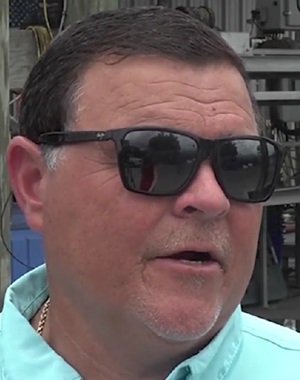 Somewhere down Shrimpers Row lies the “Shrimp Kingdom.” Once a booming business, it now struggles to make ends meet. Tracey Trahan says it’s not just because of the incredibly low prices of shrimp, but instead, a broken bridge that’s driving away thousands of customers. “It’s impacting us tremendously with our sales of our business and getting a large trucking 18-wheelers in here,” said Trahan. “Some of our vendors have even backed out from picking up here because of the highway on Shrimpers Row. It’s too narrow and our truck drivers are complaining about it being dangerous.” Trahan says he’s been asking the parish to make repairs. “I was personally told that they’re waiting on funding from FEMA,” said Trahan. Video, more, >>CLICK TO READ<<10:14
Somewhere down Shrimpers Row lies the “Shrimp Kingdom.” Once a booming business, it now struggles to make ends meet. Tracey Trahan says it’s not just because of the incredibly low prices of shrimp, but instead, a broken bridge that’s driving away thousands of customers. “It’s impacting us tremendously with our sales of our business and getting a large trucking 18-wheelers in here,” said Trahan. “Some of our vendors have even backed out from picking up here because of the highway on Shrimpers Row. It’s too narrow and our truck drivers are complaining about it being dangerous.” Trahan says he’s been asking the parish to make repairs. “I was personally told that they’re waiting on funding from FEMA,” said Trahan. Video, more, >>CLICK TO READ<<10:14
Georgia food shrimp harvest season opens June 18
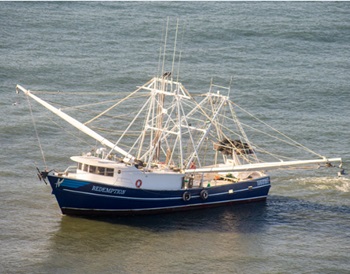 Georgia’s 2024 commercial and recreational food shrimp season will open in state waters at 8 a.m. Tuesday, June 18, 2024. The opening applies to Georgia’s territorial waters from shore to three nautical miles offshore. Data from CRD’s Ecological Monitoring Trawl Survey, which monitors shrimp populations year-round, showed the fishery in May was producing higher numbers of shrimp over the 5-year average, although their sizes were negligibly smaller than shrimp from the same period. more, >>CLICK TO READ<< 06:59
Georgia’s 2024 commercial and recreational food shrimp season will open in state waters at 8 a.m. Tuesday, June 18, 2024. The opening applies to Georgia’s territorial waters from shore to three nautical miles offshore. Data from CRD’s Ecological Monitoring Trawl Survey, which monitors shrimp populations year-round, showed the fishery in May was producing higher numbers of shrimp over the 5-year average, although their sizes were negligibly smaller than shrimp from the same period. more, >>CLICK TO READ<< 06:59
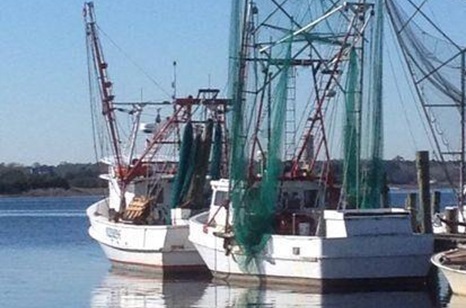
N.C. Wildlife Federation calls for inshore shrimp trawling ban, commercial fisheries lobbying group responds
N.C. Wildlife Federation CEO Tim Gestwicki called on state legislators Tuesday to “put a stop to inshore shrimp trawling as soon as possible.” In a news release, Gestwicki said the call is in response to the N.C. Division of Marine Fisheries canceling the recreational southern flounder season for 2024. Glenn Skinner, executive director of the N.C. Fisheries Association, a Morehead City-based trade and lobbying group for the state’s commercial fishermen, said Tuesday the wildlife federation is using the flounder season cancellation to scare fishermen and “build momentum” for its ongoing effort to ban shrimp trawling. The recreational fishermen exceeded the quota in 2023, he said, but commercial fishermen, who also had a short season, did not. more, >>CLICK TO READ<< 17:48
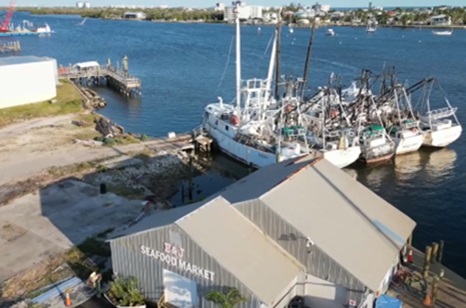
Shrimpers displaced as Fort Myers Beach Fire Department plans new training facility
The state of the shrimping industry on San Carlos Island has been a topic of concern for months. A shrimping building that once stood on the island is now a pile of rubble, recently demolished as the Fort Myers Beach Fire Department prepares to purchase the land. Virgilio Rijo, a shrimper who has been working these waters for over ten years, expressed his frustration. “Everybody here feels like they’re being pushed out,” he said. As the number of docking and processing facilities dwindles, Rijo and other shrimpers are beginning to feel the impact. “It’s just slowly shrinking, and everything that the shrimping business has is slowly shrinking, from the waterfront standpoint,” Rijo added, highlighting the challenges facing the industry. Video, more, >>CLICK TO READ<< 14:02
Filipino settlers introduced Louisiana to dried shrimp
 In Lake Borgne off the coast of St. Bernard Parish, 18th century settlers performed the “Shrimp Dance,” which introduced Louisiana to dried shrimp. Filipinos, the first Asian settlers in the United States, established a marshland community called St. Malo. The community existed as early as 1763 when Louisiana and the Philippines were ruled by the Spanish government in Mexico, according to the History Channel. The hot, sticky climate and mosquitos reminded the Manilamen – as they were called – of their native land. The Filipino settlers are credited with revolutionizing the fishing and shrimp industries. Their Shrimp Dance, for instance, preserved shellfish before there were refrigerators. more, >>CLICK TO READ<< 10:04
In Lake Borgne off the coast of St. Bernard Parish, 18th century settlers performed the “Shrimp Dance,” which introduced Louisiana to dried shrimp. Filipinos, the first Asian settlers in the United States, established a marshland community called St. Malo. The community existed as early as 1763 when Louisiana and the Philippines were ruled by the Spanish government in Mexico, according to the History Channel. The hot, sticky climate and mosquitos reminded the Manilamen – as they were called – of their native land. The Filipino settlers are credited with revolutionizing the fishing and shrimp industries. Their Shrimp Dance, for instance, preserved shellfish before there were refrigerators. more, >>CLICK TO READ<< 10:04
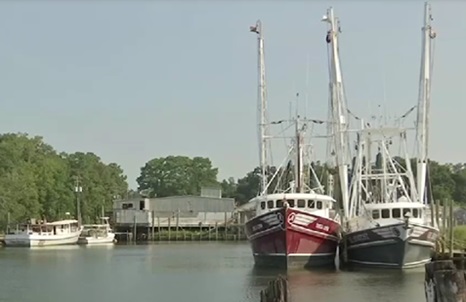
Alabama on verge of requiring sellers to say where their seafood comes from
The seafood industry that put this small city on the map says it is in crisis, buffeted by foreign imports that have driven down the price of shrimp to as little as a dollar per pound. Those prices are comparable to what shrimp fetched in the early 1980s – too low, Steve Sprinkle said, for many operators even to take their boats out. But the Alabama Legislature is trying to at least make it easier for consumers who want to buy local. A bill that got final approval this week would require restaurants to include “country of origin” information on or with the menu. There’s a similar requirement for good trucks and stores. Video, more, >>CLICK TO READ<< 09:48
75th annual Blessing of the Fleet: The last for some shrimpers
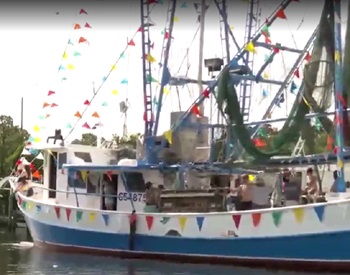 Archbishop Thomas Rodi led the town in prayer for safety and fruition over the waters in Bayou La Batre. After the prayer, the Archbishop, the Blessing of the Fleet Queens, and Father Micheal Long Vu boarded a boat. Father Vu dropped a blessed wreath into the water to honor the souls who were lost at sea. However, despite the yearly tradition, shrimpers say the blessings are not going very far. “We’re all probably going to have a little cry it’s our last year doing it and we will probably not be going to be able to do it again,” Haleigh Keith lamented. For the past 20 years, Haleigh and Peyton have gone shrimping with their grandfather on the family’s shrimping boat called “God’s Blessing’s”. However, that boat is going on sale at the end of the season. Video, more, >>CLICK TO READ<< 11:41
Archbishop Thomas Rodi led the town in prayer for safety and fruition over the waters in Bayou La Batre. After the prayer, the Archbishop, the Blessing of the Fleet Queens, and Father Micheal Long Vu boarded a boat. Father Vu dropped a blessed wreath into the water to honor the souls who were lost at sea. However, despite the yearly tradition, shrimpers say the blessings are not going very far. “We’re all probably going to have a little cry it’s our last year doing it and we will probably not be going to be able to do it again,” Haleigh Keith lamented. For the past 20 years, Haleigh and Peyton have gone shrimping with their grandfather on the family’s shrimping boat called “God’s Blessing’s”. However, that boat is going on sale at the end of the season. Video, more, >>CLICK TO READ<< 11:41
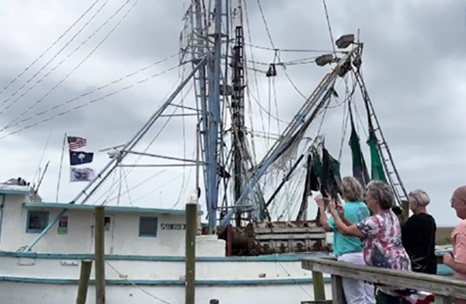
A call for the price of shrimp to rise as St. Helena Island’s boats head to sea
The future is uncertain for shrimpers in coastal South Carolina, but you wouldn’t know that from the bright, buoyant crowd that gathered Saturday at the Gay Fish Company. Attendees rang in the start of the 2024 season with cowbells and noisemakers, sending off a fleet of shrimp trawlers into the Harbour River as their nets waved like sails in the gentle morning breeze. Owned by a family of veterans spanning three generations, the Gay Fish Company on St. Helena Island held its inaugural “Blessing of the Fleet” Saturday morning. Typically involving a local pastor praying over captains for a safe and bountiful season, the practice has been a staple in fishing communities for centuries. But as fisheries up and down the coast grapple with industry shakeups from overseas, the ceremony takes on a new sort of significance. Photos, Video, more, >>CLICK TO READ<< 08:29
Mount Pleasant’s annual ‘Blessing of the Fleet’ honors local shrimp and fishing industry
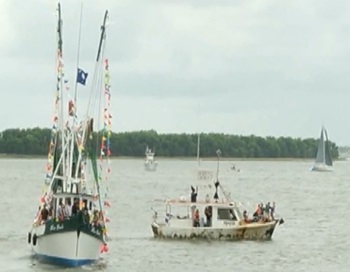 An annual event that pays tribute to the Lowcountry’s shrimping and fishing industry returns this weekend to Mount Pleasant Memorial Waterfront Park. Blessing of the Fleet and Seafood Festival serves as a kickoff to coastal shrimping season, which typically begins in early June. It also serves as a reminder to eat and buy locally caught shrimp to support Charleston’s seafood industry. It happens Sunday, April 28 from 11:00 a.m. until 5:00 p.m. Attendees can enjoy a boat parade, live music, craft show and plenty of free activities with the Ravenel Bridge and Charleston Harbor as a backdrop, organizers say. more, >>CLICK TO READ<< 06:34
An annual event that pays tribute to the Lowcountry’s shrimping and fishing industry returns this weekend to Mount Pleasant Memorial Waterfront Park. Blessing of the Fleet and Seafood Festival serves as a kickoff to coastal shrimping season, which typically begins in early June. It also serves as a reminder to eat and buy locally caught shrimp to support Charleston’s seafood industry. It happens Sunday, April 28 from 11:00 a.m. until 5:00 p.m. Attendees can enjoy a boat parade, live music, craft show and plenty of free activities with the Ravenel Bridge and Charleston Harbor as a backdrop, organizers say. more, >>CLICK TO READ<< 06:34
Foreign seafood could be banned at Louisiana schools
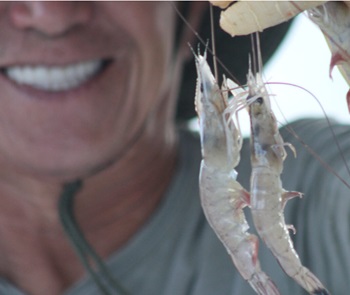 Students could be guaranteed domestic catch when seafood is on the school menu if a proposal before the Louisiana Legislature becomes law. The state House approved a bill Tuesday that would prohibit any public or private schools that receive state money from serving foreign seafood to students. House Bill 429, sponsored by Rep. Marcus Bryant, D-New Iberia, passed in a 94-7 vote with bipartisan support. It will next head to the Senate for consideration. An influx of cheap foreign catch, imported mostly from South America and Asia, has flooded Louisiana restaurants and retailers. Consumers are either oblivious to it or mistakenly believe they’re eating local fare because of deceptive labeling practices, according to the Louisiana Shrimp Association. more, >>click to read<< 07:54
Students could be guaranteed domestic catch when seafood is on the school menu if a proposal before the Louisiana Legislature becomes law. The state House approved a bill Tuesday that would prohibit any public or private schools that receive state money from serving foreign seafood to students. House Bill 429, sponsored by Rep. Marcus Bryant, D-New Iberia, passed in a 94-7 vote with bipartisan support. It will next head to the Senate for consideration. An influx of cheap foreign catch, imported mostly from South America and Asia, has flooded Louisiana restaurants and retailers. Consumers are either oblivious to it or mistakenly believe they’re eating local fare because of deceptive labeling practices, according to the Louisiana Shrimp Association. more, >>click to read<< 07:54
Will $2.9 million in grants actually help Mississippi fishermen?
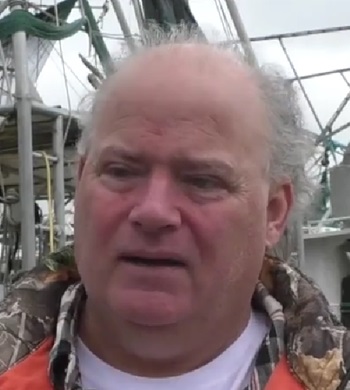 In 2023, it was declared that it was a federal fisheries disaster, making Mississippi fisheries eligible for assistance. “At this point, it’s more like a feel-good program,” said one fisherman. “Here, let me give you a little money, make you feel better.” It’s been five years since disaster struck the fishing industry in the gulf, and while fishermen have received some help since then, they say the response has been slow – too slow to actually be beneficial. Mark Kopszywa has found himself in a perpetual cycle of playing catch-up after taking such a big loss in 2019 and not being able to make up for it quickly. Video, more, >>click to read<< 06:29
In 2023, it was declared that it was a federal fisheries disaster, making Mississippi fisheries eligible for assistance. “At this point, it’s more like a feel-good program,” said one fisherman. “Here, let me give you a little money, make you feel better.” It’s been five years since disaster struck the fishing industry in the gulf, and while fishermen have received some help since then, they say the response has been slow – too slow to actually be beneficial. Mark Kopszywa has found himself in a perpetual cycle of playing catch-up after taking such a big loss in 2019 and not being able to make up for it quickly. Video, more, >>click to read<< 06:29
Fort Myers Beach shrimpers face uncertain waters post-Hurricane Ian – Captains point to imported shrimp
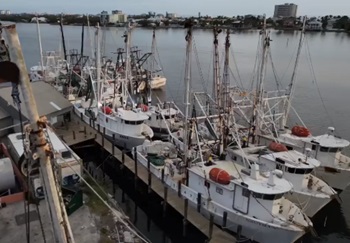 On San Carlos Island, just off Shrimp Boat Lane, the local shrimp fishing community is navigating troubled waters in the aftermath of Hurricane Ian. Even with their ships repaired, the challenges for these shrimpers are far from over. Henry Gore, a seasoned shrimp boat captain of over 40 years, tells us it’s the worst state he’s seen for the local shrimping industry. The decline is due to two main factors: the high cost of boat repairs, often exceeding $100,000, and the competition from internationally imported farm shrimp. Video, more, >>click to read<< 10:53
On San Carlos Island, just off Shrimp Boat Lane, the local shrimp fishing community is navigating troubled waters in the aftermath of Hurricane Ian. Even with their ships repaired, the challenges for these shrimpers are far from over. Henry Gore, a seasoned shrimp boat captain of over 40 years, tells us it’s the worst state he’s seen for the local shrimping industry. The decline is due to two main factors: the high cost of boat repairs, often exceeding $100,000, and the competition from internationally imported farm shrimp. Video, more, >>click to read<< 10:53
Preserving our heritage and livelihood – A shrimper’s stand against unjust regulations
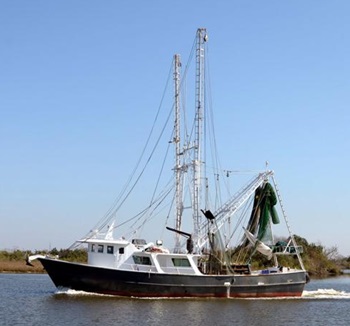 I’ve been a shrimper for over 45 years. It’s more than just a job; it’s a legacy that’s been passed down through generations in my family. Since I was 15, I’ve been working in the waters of Plaquemines Parish, my workplace, my passion, and my source of livelihood. Today, as I continue to bring the finest Gulf shrimp to your tables, I find myself fighting not only for my job but for the very soul of Louisiana’s shrimping heritage. The recent rule by the National Marine Fisheries Service (NMFS) mandating the use of Turtle Excluder Devices (TEDs) on skimmer trawl vessels longer than 40 feet is a real threat to our community. This rule, though it may seem well-intentioned, is an example of overreach and disregard for our industry’s reality. more, >>click to read<< 13:44
I’ve been a shrimper for over 45 years. It’s more than just a job; it’s a legacy that’s been passed down through generations in my family. Since I was 15, I’ve been working in the waters of Plaquemines Parish, my workplace, my passion, and my source of livelihood. Today, as I continue to bring the finest Gulf shrimp to your tables, I find myself fighting not only for my job but for the very soul of Louisiana’s shrimping heritage. The recent rule by the National Marine Fisheries Service (NMFS) mandating the use of Turtle Excluder Devices (TEDs) on skimmer trawl vessels longer than 40 feet is a real threat to our community. This rule, though it may seem well-intentioned, is an example of overreach and disregard for our industry’s reality. more, >>click to read<< 13:44
Senator John Kennedy works to bring Louisiana shrimping industry back to life
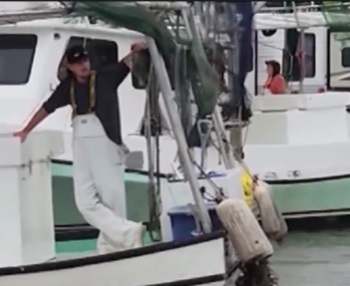 The $36 million purchase from the United States Department of Agriculture (USDA) of the Louisiana shrimping industry was done to help alleviate some of the issues the industry has been struggling with for years. United States Senator John Kennedy (R- La) says although he applauds the purchase, more still needs to be done to save the industry. Acy Cooper with the Louisiana Shrimp Association agrees with the senator the purchase does help, but additional assistance is needed to save one of Louisiana’s biggest industries. Video, more, >>click to read<<12:41
The $36 million purchase from the United States Department of Agriculture (USDA) of the Louisiana shrimping industry was done to help alleviate some of the issues the industry has been struggling with for years. United States Senator John Kennedy (R- La) says although he applauds the purchase, more still needs to be done to save the industry. Acy Cooper with the Louisiana Shrimp Association agrees with the senator the purchase does help, but additional assistance is needed to save one of Louisiana’s biggest industries. Video, more, >>click to read<<12:41
Beaufort leaders ask Gov. McMaster to declare economic disaster to help shrimping industry
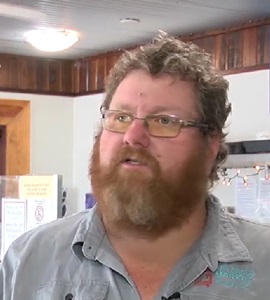 This all comes after local shrimper Craig Reaves sent this letter to city council explaining how shrimp dumping threatens his livelihood, and that of many others. In his letter to council, Reaves says that ‘all commercial fishing families have been decimated.’ He lists multiple reasons for said decimation but says that import dumping is the lead cause. For context, shrimp dumping is when farmed shrimp from other countries is sold to U.S. retailers and restaurants for below the market price that local shrimpers adhere to. Beaufort officials recognize the issue. “You can’t have locally owned operated seafood companies if the market price is going to be debased by this amount of flooded shrimp that’s coming in,” said Beaufort’s Acting Mayor Michael McFee. Video, more, >>click to read<< 08:40
This all comes after local shrimper Craig Reaves sent this letter to city council explaining how shrimp dumping threatens his livelihood, and that of many others. In his letter to council, Reaves says that ‘all commercial fishing families have been decimated.’ He lists multiple reasons for said decimation but says that import dumping is the lead cause. For context, shrimp dumping is when farmed shrimp from other countries is sold to U.S. retailers and restaurants for below the market price that local shrimpers adhere to. Beaufort officials recognize the issue. “You can’t have locally owned operated seafood companies if the market price is going to be debased by this amount of flooded shrimp that’s coming in,” said Beaufort’s Acting Mayor Michael McFee. Video, more, >>click to read<< 08:40
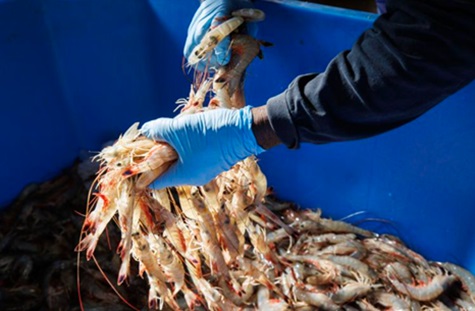
Editorial: South Carolina’s shrimpers are struggling; here’s 1 way to help
Those living in the Charleston area likely are well-familiar with the fact that our local shrimping industry has long been bruised by competition from imported shrimp, but the problem seems to have become more urgent than ever. Fortunately, there are steps we all can take to help out. As S.C. Shrimpers Association vice president Bryan Jones wrote in his recent letter to the editor, our state’s shrimping fleet has reached a critical juncture, threatening the livelihoods of thousands of families and a cherished way of life along our coast. That’s why our state’s association is joining with similar groups in other coastal states to press their case on both the state and federal levels, seeking an economic disaster declaration that would lead to short-term relief, such as low-interest loans and tax breaks. >>click to read<< 11:28
One Year after Ian: Shrimping Industry
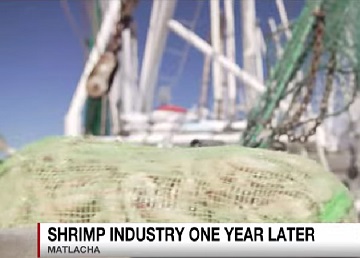 Grant Erickson’s family spent 70 years building their shrimping business on San Carlos Island. Hurricane Ian destroyed it in about 12 hours. “Devastating. We’ve never been damaged so bad,” he recalled. “You come back to that, and you’re stunned. You’re in shock. You don’t even know where to start. It’s too much all at once.” It’s just hard to put in words the last year,” Jesse Clapham, the fleet manager for Erickson and Jensen Seafood. “We had a meeting, and everybody said, ‘Do we want to give up and go home, or do we want to put it back together?’ And everybody unanimously said, ‘Put it back together,’” he recalled. But doing so would be a Herculean challenge. Photo, Video, >>click to read<< 10:57
Grant Erickson’s family spent 70 years building their shrimping business on San Carlos Island. Hurricane Ian destroyed it in about 12 hours. “Devastating. We’ve never been damaged so bad,” he recalled. “You come back to that, and you’re stunned. You’re in shock. You don’t even know where to start. It’s too much all at once.” It’s just hard to put in words the last year,” Jesse Clapham, the fleet manager for Erickson and Jensen Seafood. “We had a meeting, and everybody said, ‘Do we want to give up and go home, or do we want to put it back together?’ And everybody unanimously said, ‘Put it back together,’” he recalled. But doing so would be a Herculean challenge. Photo, Video, >>click to read<< 10:57
North Carolina: State’s shrimping industry needs Cooper’s support
 As the state’s shrimping industry faces a perfect storm of challenges that may result in the demise of hundreds of family owned fishing businesses, it is time for Governor Cooper to show that he is as committed to the small entrepreneur as he is the large industrial investors that he continually promotes whenever a ribbon cutting opportunity arises. John Williams, executive director of the Southern Shrimp Alliance has sent a letter to eight coastal governors, including North Carolina’s, asking their support both financially and politically as the domestic shrimping industry faces unprecedented challenges to its existence. So far the alliance has not received a positive response. Describing the situation as “an unprecedented catastrophic crisis that threatens its (the domestic shrimping industry’s) very existence,” William’s letter notes that foreign imports along with high fuel prices are devastating “the many family-owned businesses that are the core of the economies of coastal communities.” >>click to read<< 08:36
As the state’s shrimping industry faces a perfect storm of challenges that may result in the demise of hundreds of family owned fishing businesses, it is time for Governor Cooper to show that he is as committed to the small entrepreneur as he is the large industrial investors that he continually promotes whenever a ribbon cutting opportunity arises. John Williams, executive director of the Southern Shrimp Alliance has sent a letter to eight coastal governors, including North Carolina’s, asking their support both financially and politically as the domestic shrimping industry faces unprecedented challenges to its existence. So far the alliance has not received a positive response. Describing the situation as “an unprecedented catastrophic crisis that threatens its (the domestic shrimping industry’s) very existence,” William’s letter notes that foreign imports along with high fuel prices are devastating “the many family-owned businesses that are the core of the economies of coastal communities.” >>click to read<< 08:36
Former commercial fisherman Samuel “Sammie” Elton Leonard of Calabash, NC. has passed away
 He was born on May 26, 1939 in Shallotte Point, NC. He was the son of the late Lloyd Leonard and Pauline Grissett Leonard. In addition to his parents, he was preceded in death by sisters Joyce Skeen and Dorit Teeters, and brothers Elroy Leonard and Etheridge Leonard. Sammie was quite a successful commercial fisherman, owning a fleet of shrimp boats. He was well respected in the shrimping industry as one of the best. He even designed and took part in the building process of his largest boat, The Big Mama, which dwarfed other boats of its kind. He later owned and operated True Value Hardware in Calabash, NC. Sammie was a jack of all trades and always willing to lend a hand when needed. >click to read< 10:40
He was born on May 26, 1939 in Shallotte Point, NC. He was the son of the late Lloyd Leonard and Pauline Grissett Leonard. In addition to his parents, he was preceded in death by sisters Joyce Skeen and Dorit Teeters, and brothers Elroy Leonard and Etheridge Leonard. Sammie was quite a successful commercial fisherman, owning a fleet of shrimp boats. He was well respected in the shrimping industry as one of the best. He even designed and took part in the building process of his largest boat, The Big Mama, which dwarfed other boats of its kind. He later owned and operated True Value Hardware in Calabash, NC. Sammie was a jack of all trades and always willing to lend a hand when needed. >click to read< 10:40






